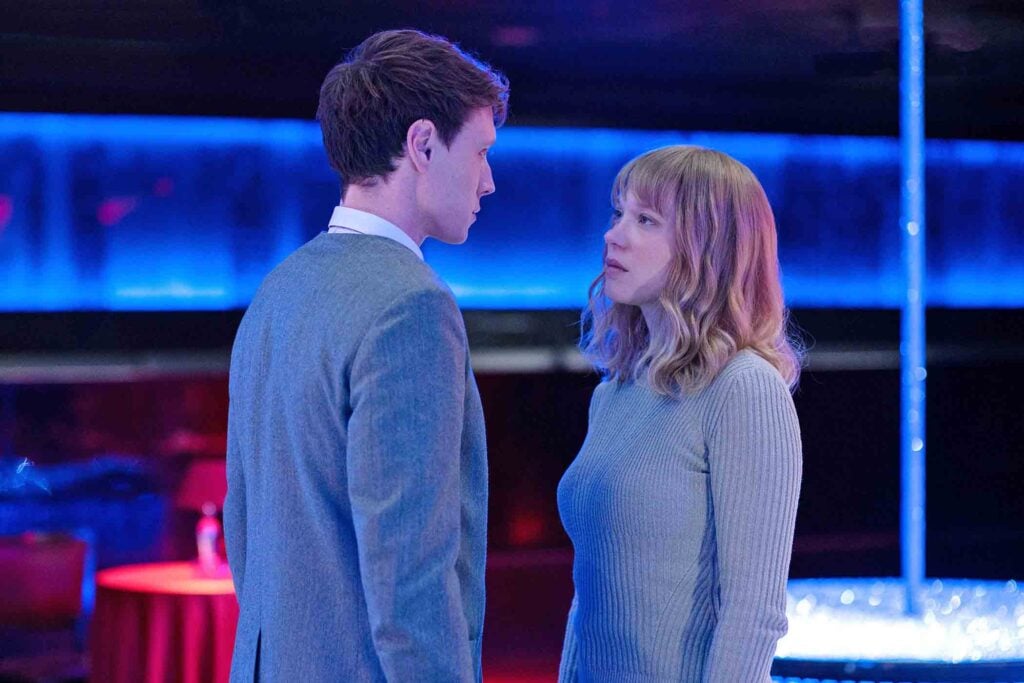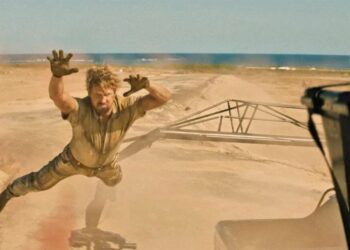You will, having seen Bertrand Bonello’s new film, The Beast, walk away feeling as though you certainly saw something, but what? Ambitious, maddeningly vague, bristling with both invention and thematic confusion, veering a little too close to the frou-frou quasi-scientific spiritualism of Cloud Atlas and not nearly close enough to the emotional payload attached to any of its myriad topical ideas, the film tries so hard to be the Movie of the Moment that it seems to be already dated, like that deep-fake Obama meme from 2017.
This is a movie, after all, that ends not with a credit roll but a QR code for you to boink. (You might get quished!) Bonello hopscotches between three narrative timelines — I think it’s just three, if star Léa Seydoux’s various haircuts are any guide — all of which have some ostensible relationship to the screenplay’s source water, Henry James’s novella The Beast in the Jungle, one of the revered and thematically top-heavy stories in the Western canon. Famously, nothing much happens in the tale, which centers on a man so haunted by the sense of something horrible eventually occurring to him, stalking him like “a beast in the jungle,” that he postpones everything in life, until it becomes apparent that his neurotic withdrawal is the tragedy he’d dreaded. Since it’s James at the pen, the story is not as merely ironic as it sounds in synopsis; in 1903, it had a distinctly existential chill that seemed to anticipate acres of Modernism to come.
That was then. James’s mysterious-yet-modern crisis of pessimistic inaction doesn’t quite translate to the AI-controlled world that Bonello conjures in one of the film’s threads, a decades-hence realm in which Gabrielle (Seydoux) struggles to decide to do what everyone is doing — have AI “cleanse your DNA” of the trauma of “past lives,” and in the process give up her emotions, body-snatcher-style. Cleansing DNA of past lives? I’ve often thought that people who…
Read the full article here







